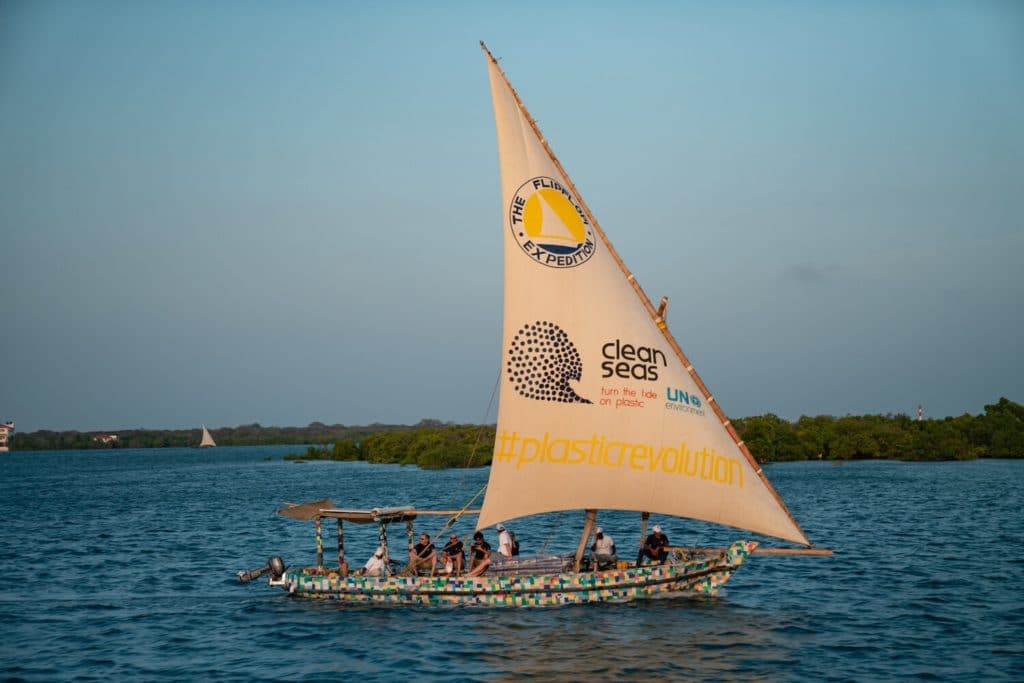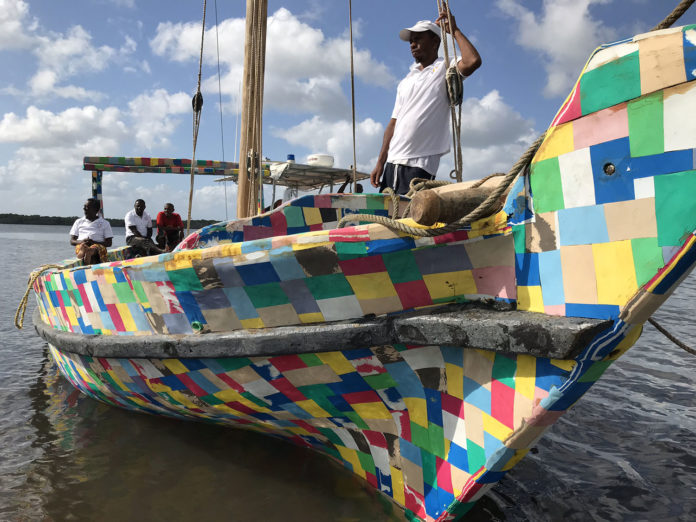Every year, up to 12.7 million metric tons of plastic waste make their way into the oceans. Pollution threatens many marine species suffocated or injured by this waste. By 2050, it is estimated that the oceans could have more plastic than fish.
Faced with this observation, an ambitious Flipflopi Project that set out to build a sailing boat entirely from recycled plastic collected on beach cleanups was born in 2015. The project was co-founded by Northumbria alumni Ben Morison, who decided to research on alternative uses for used plastic – and quickly realized that building a boat from this plastic waste would be an effective way.

Called Flipflopi, the boat is made from 10 tonnes of plastic waste collected on the Kenyan coast. Combining traditional boat building whilst also pioneering new techniques, the team was able to craft the various components of the dhow. The plastic wastes were melted, shaped, and carved by the team exactly as they would do with wood. Every single element of the boat has been constructed by hand, and the whole boat has been clad in colorful sheets of recycled flip-flops, the footwear of 3 billion people (and the most common item found during our beach clean-ups). The dhow is over nine meters long and weighs 7 tonnes.
After two years of construction, this multi-colored boat set sail on Lake Victoria in Kenya to promote an awareness campaign about plastic pollution in March. The goal was to inspire and educate people about the impact of pollution on human health and the marine environment.
Lake Victoria, bordered by three countries, Uganda, Kenya, and Tanzania, has become the sad symbol of pollution on the African continent. The lake encounters a multitude of environmental and health problems. It suffers from the pollution of poorly managed waste from urban and industrial areas and the consequences of climate change.
Over the last four years, the Flipflopi movement has also joined forces with the United Nations Environment Programme to advocate against marine pollution.
